|
When a colleague and I copy-edited today’s top story on workplace burnout, we both had a twinge of recognition: In the early days of the COVID-19 pandemic, we remembered feeling the way the author, an organizational/industrial psychologist, described feeling when she was working in an emergency co-ordination centre during the Fort McMurray wildfires in 2016. Exhausted, irritated, impatient, struggling to concentrate and to take in new information. In short, like the author, we were overloaded by the sheer volume of our work and the challenges and conflicting priorities that accompanied every new COVID-19 development.
Today in The Conversation Canada, Kristen Deuzeman of the Northern Alberta Institute of Technology writes about how the World Health Organization has labelled chronic workplace stress “burnout.” Deuzeman notes that employees who report burnout can be diagnosed with a workplace injury. She also issues a call to action to employers, urging them to “implement clear policies reflecting their commitment to workplace mental health and psychological safety, and appoint a wellness champion and leaders who model these values.”
Also today:
Regards,
|
Lee-Anne Goodman
Politics, Business + Economics Editor
|

|
|
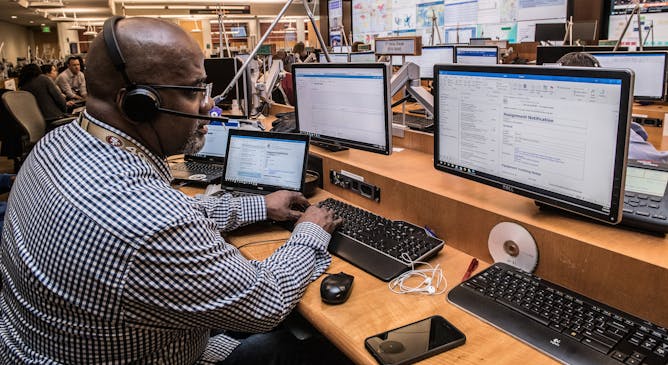
The Centers for Disease Control and Prevention in Atlanta activated its emergency operations centre in response to the COVID-19 pandemic.
(Centers for Disease Control/Unsplash)
Kristen Deuzeman, Northern Alberta Institute of Technology
Burnout as the result of workplace stress has big implications for employers. Occupational health and safety standards require employers to protect both the physical and mental health of workers.
|
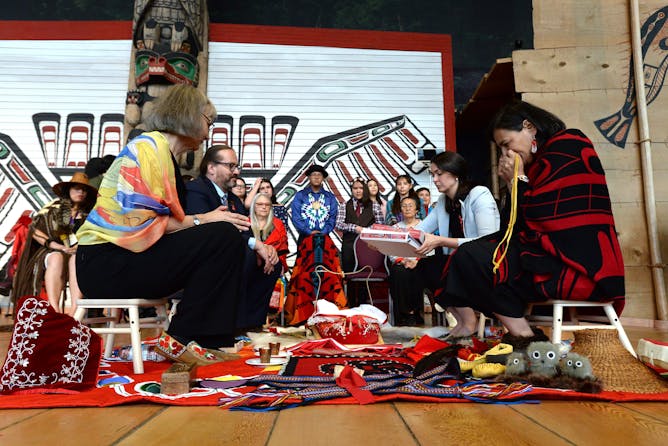
Chief commissioner Marion Buller and commissioners Brian Eyolfson, Qajaq Robinson and Michele Audette prepare the final report to give to the government at the closing ceremony for the National Inquiry into Missing and Murdered Indigenous Women and Girls in 2019.
THE CANADIAN PRESS/Adrian Wyld
Margaret Moss, University of British Columbia; Marique B. Moss
The MMIWG Inquiry two years later, whats changed and what still needs to be done?
|

Getting a referral to palliative care can be a complicated process.
(Shutterstock)
Janis M. Miyasaki, University of Alberta
Palliative care is about living well and meeting patients’ goals, but referral can be more complex than access to medical assistance in dying (MAID). Palliative care should be as accessible as MAID.
|
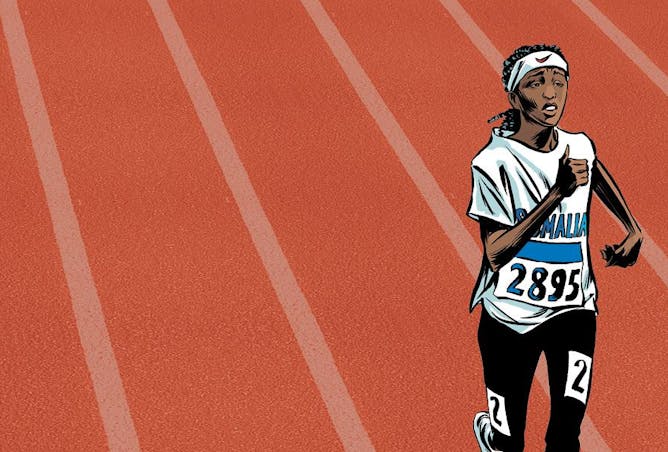
‘An Olympic Dream: The Story of Samia Yusuf Omar’ recounts how the Somali Olympic runner drowned while trying to reach Italy in 2012.
(From Reinhard Kleist's 'An Olympic Dream: The Story of Samia Yusuf Omar/SelfMadeHero)
Elizabeth "Biz" Nijdam, University of British Columbia
Comics about migrant experiences seek to expose personal perspectives about the global crisis of 80 million individuals and families forcibly displaced worldwide.
|

By acknowledging our biases we can find ways to mitigate their impact on our decision making.
(Shutterstock)
Eleftherios Soleas, Queen's University, Ontario
The motives and biases behind our actions shape how we see the world and everything in it. Understanding our biases means we can contain their negative influence and advance justice in our society.
|
La Conversation Canada
|
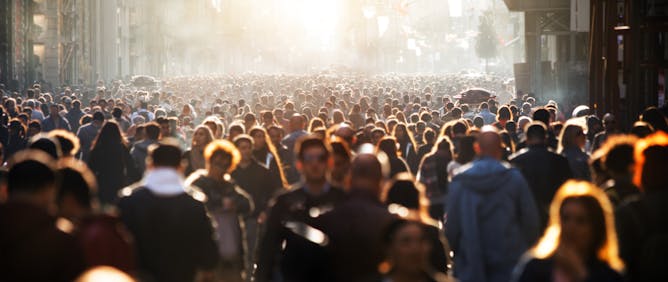
Nombreux sont les groupes et communautés qui demeurent invisibles au regard des technologies numériques soit parce qu’ils sont déjà socialement marginalisés ou parce que leurs besoins ne sont pas prioritaires.
(Shutterstock)
Karine Gentelet, Université du Québec en Outaouais (UQO); Sandrine Lambert, Université Laval
Les développements de l’intelligence artificielle doivent être pensés avant tout comme des projets de société justes, inclusifs et démocratiques.
|
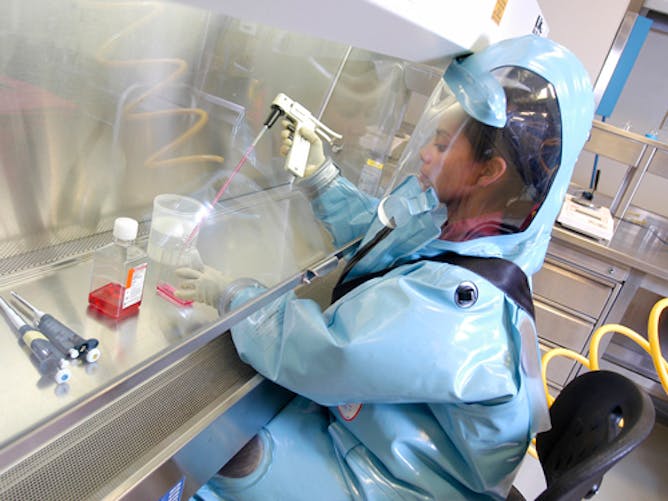
Une scientifique habillée d'une combinaison pressurisée au Laboratoire national de microbiologie de Winnipeg.
(Agence de la santé publique du Canada)
Filippa Lentzos, King's College London; Gregory Koblentz, George Mason University
Une grande partie de la recherche scientifique sur les coronavirus est menée dans des pays qui ne contrôlent pas la recherche à double usage ou les expériences de gain de fonction.
|
COVID-19
|
-
Mark Stevenson, Lancaster University
Counterfeit vaccines are undermining the global effort to stop COVID-19. Why are they so prevalent, and how can we stop them?
|
|
Environment + Energy
|
-
William Terry, Southern Cross University
For phascogales, tree hollows are getting harder to find. I venture into forests and study how well artificial hollows made with chainsaws can replace them.
|
|
Politics
|
-
Chia-Lin Chen, University of Liverpool
The government's plan to shake up the national rail system is ambitious. Whether it will be cheaper for the customer – and for the nation – remains to be seen
|
|
| |
| |
| |
| |

|
| |
| |
| |
| |
| |
| |
| |
| |
|
|